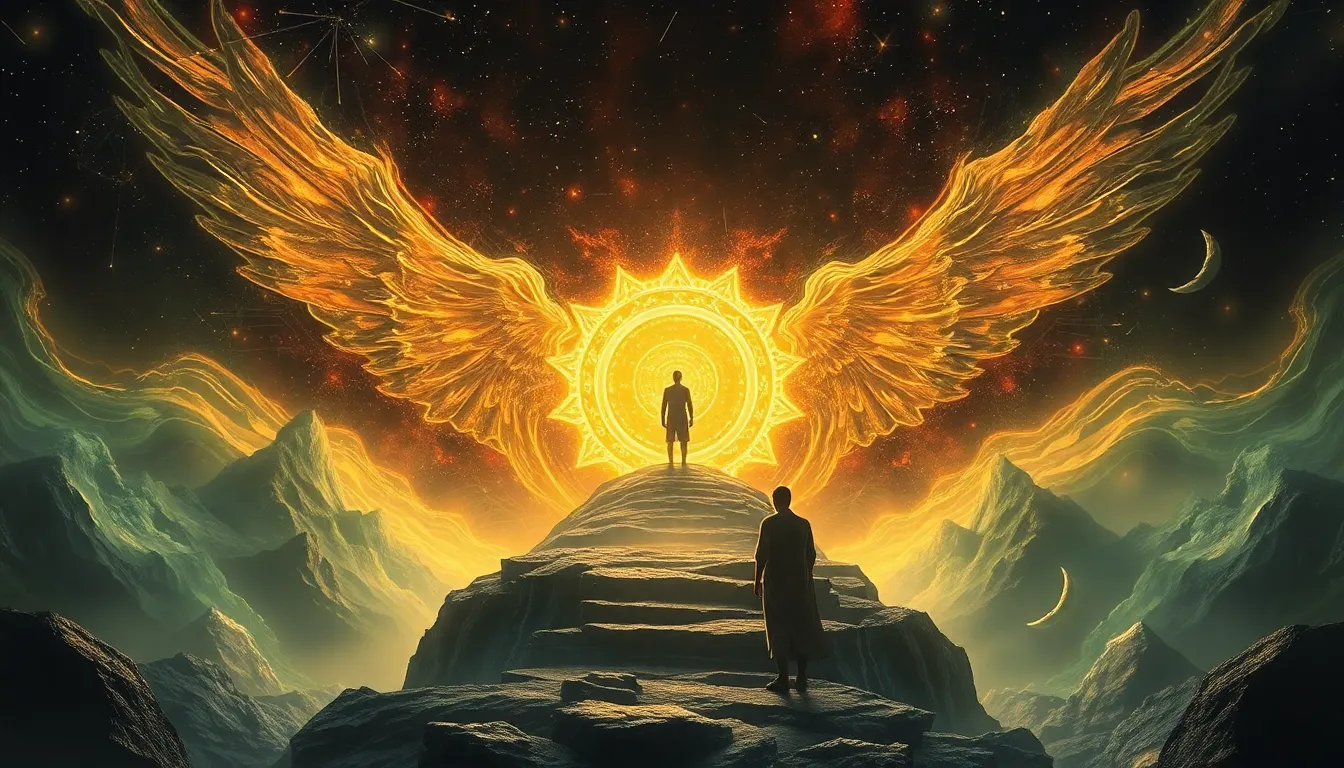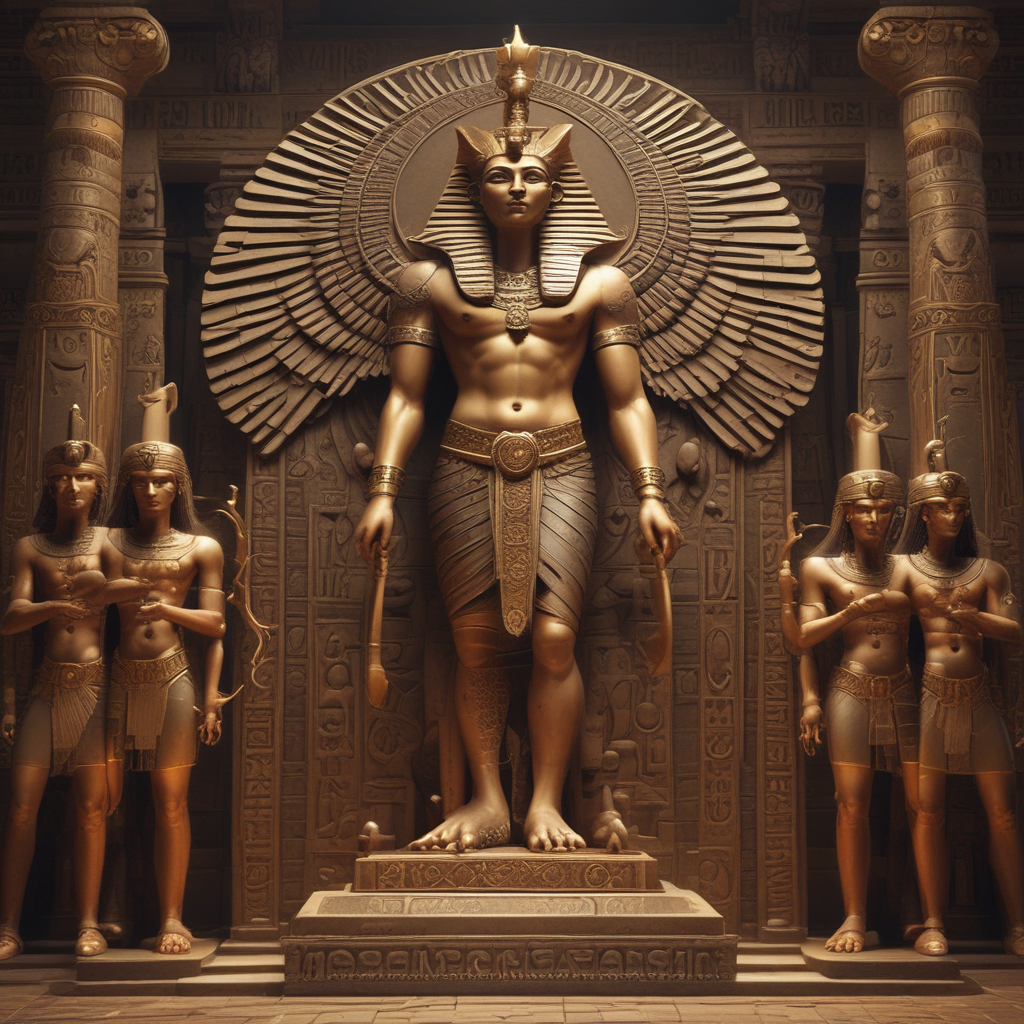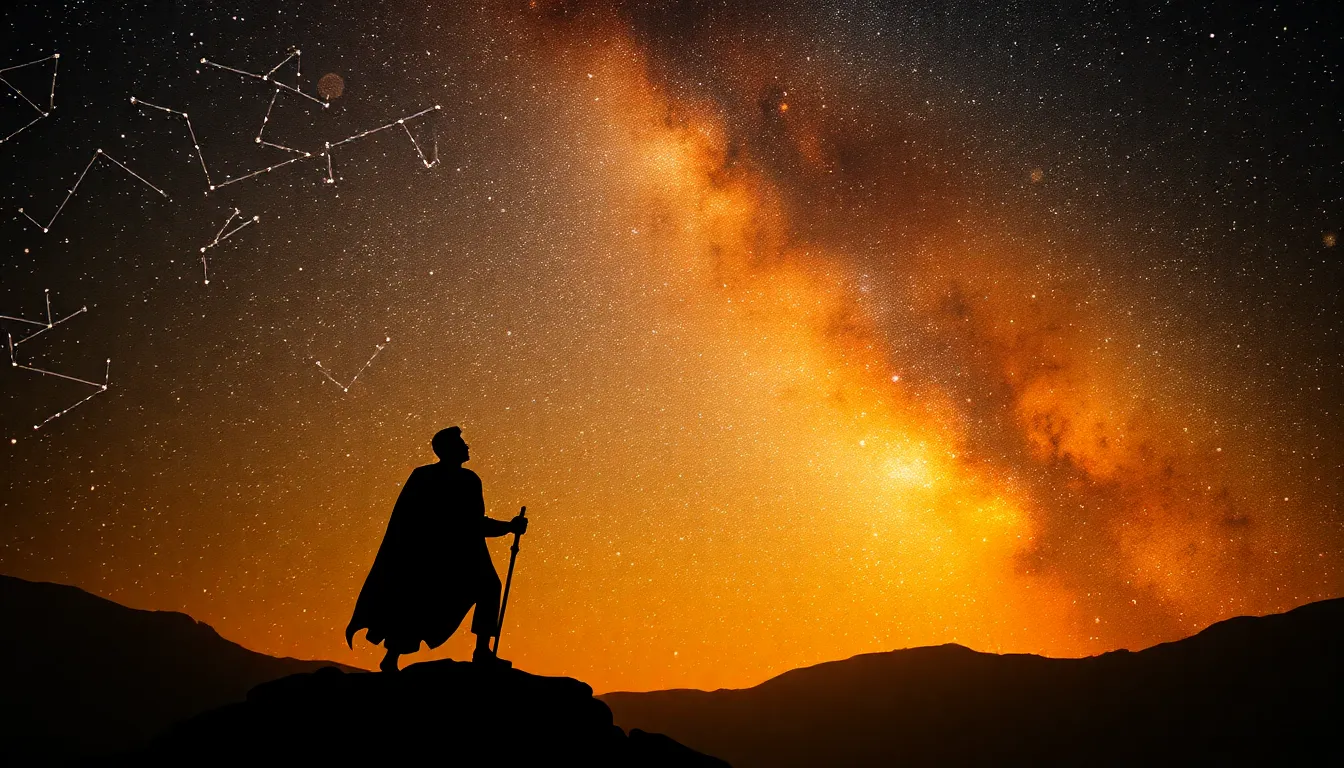The First Echo: Creation Myths That Resound Through Time
I. Introduction: The Significance of Creation Myths
Creation myths serve as foundational narratives that explain the origins of the universe, humanity, and the natural world. These stories, passed down through generations, are rich in symbolism and cultural significance.
They play a vital role in shaping the beliefs, values, and identity of various cultures. By examining these myths, we gain insight into the universal human experience and our place in the cosmos.
This article aims to explore the significance of creation myths across different cultures, highlighting their universal themes, roles in nature, and evolution over time. We will also look at contemporary interpretations and the enduring legacy of these narratives.
II. The Universal Themes in Creation Myths
Creation myths often share common themes that resonate across diverse cultures. These themes provide a framework for understanding the universe and our existence within it.
- Chaos and order: Many myths begin with a state of chaos, from which order emerges, symbolizing the transition from disorder to harmony.
- The emergence of light and darkness: Light often represents knowledge, life, and goodness, while darkness embodies ignorance, chaos, and evil.
- The role of deities and supreme beings: Creation typically involves the actions of gods or cosmic beings who shape the universe and its inhabitants.
III. Creation Myths from Different Cultures
Various cultures have developed unique creation myths that reflect their values, environment, and understanding of existence. Here are a few notable examples:
A. Mesopotamian Myths: The Enuma Elish
The Enuma Elish is one of the oldest known creation myths, originating from ancient Mesopotamia. It narrates the story of the god Marduk, who defeats the primordial goddess Tiamat and creates the world from her remains. This myth emphasizes the themes of order triumphing over chaos and the divine right of kings.
B. Egyptian Myths: The Creation through Atum and the Nile
In ancient Egypt, creation is often attributed to Atum, who emerged from the primordial waters of the Nile. Atum created the first gods and humanity through a process of self-generation, showcasing the importance of water and fertility in Egyptian culture.
C. Indigenous Myths: The Stories of the Earth and Sky
Indigenous cultures around the world have their creation stories, often featuring Earth as a living entity and emphasizing the connection between humans and nature. These myths highlight the respect for the land and the spiritual significance of the natural world.
IV. The Role of Nature in Creation Narratives
Nature plays a pivotal role in many creation myths, often regarded as a manifestation of divine power and creativity. Key elements include:
- Earth, water, and sky: These elements are frequently depicted as fundamental components of the universe, essential for life.
- The significance of animals and plants: Many myths incorporate animals and plants as sacred beings or symbols of divine creation.
- Nature as a reflection of divine creation: The beauty and complexity of the natural world are often seen as expressions of the divine will.
V. Duality and Conflict in Creation Stories
Conflict is a recurring theme in many creation myths, illustrating the duality of existence. This includes:
- The battle between gods and primordial forces: Many myths portray struggles between gods and chaotic forces that threaten creation.
- The concept of good vs. evil: The emergence of good and evil often stems from these conflicts, shaping moral frameworks within cultures.
- How conflict shapes the world: Creation stories often suggest that the world is forged through struggle, reflecting the complexities of existence.
VI. Creation Myths and Human Origins
Creation myths frequently delve into the origins of humanity, exploring the relationship between gods and humans. Key aspects include:
- Myths explaining the birth of humanity: Various narratives depict humanity as created from divine materials, such as clay or blood.
- The relationship between gods and humans: Many myths convey a sense of kinship or conflict between the divine and human realms.
- Cultural implications of human creation narratives: These myths often reflect cultural values, such as the responsibilities of humans towards the earth and the divine.
VII. The Evolution of Creation Myths Over Time
As societies evolve, so do their creation myths. This evolution can be seen in several contexts:
- Changes in narratives with historical contexts: Myths adapt to reflect the prevailing beliefs, values, and experiences of a culture.
- The influence of science and philosophy: The rise of scientific inquiry and philosophical thought has led to reinterpretations of creation narratives.
- Modern interpretations and adaptations of ancient myths: Contemporary literature and media often draw on ancient myths, reimagining them for modern audiences.
VIII. The Psychological and Symbolic Interpretations of Creation Myths
Creation myths have significant psychological and symbolic implications. They often include:
- Archetypes and the collective unconscious: Carl Jung suggested that creation myths tap into universal archetypes present in the collective unconscious, resonating with shared human experiences.
- The impact of creation myths on individual identity: These narratives help shape personal and cultural identities, providing a sense of belonging and understanding of one’s place in the world.
- Storytelling as a means of understanding existence: Myths serve as a vehicle for exploring existential questions and the mysteries of life.
IX. Creation Myths in Contemporary Culture
In modern times, creation myths continue to influence literature, film, and art. Key points include:
- Representation in literature, film, and art: Many contemporary works draw inspiration from creation myths, weaving them into narratives that explore current themes.
- The resurgence of interest in mythology: There is a growing fascination with myths, as they offer insights into human nature and our relationship with the universe.
- Creation myths as tools for social commentary: Modern adaptations often use myth to critique societal norms and explore contemporary issues.
X. Conclusion: The Enduring Legacy of Creation Myths
Creation myths remain relevant in today’s world, continuing to shape cultural narratives and individual identities. They provide a framework for understanding our origins and the complexities of existence.
As we explore these ancient stories, we uncover timeless truths about humanity’s quest for meaning and the enduring nature of our connection to the cosmos. The echoes of creation myths resonate through time, reminding us of the shared heritage of all cultures.


